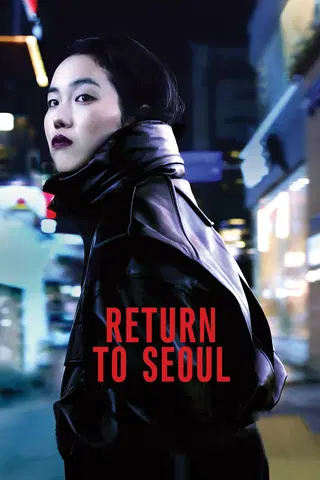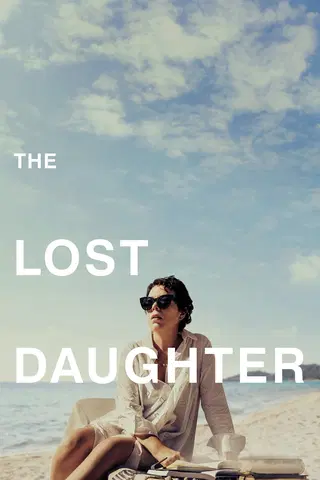Where to Watch Return to Seoul online
Select your country to find out where to watch "Return to Seoul".
Cast & Crew
Frequently asked questions
What is Return to Seoul about? 
Return to Seoul is a powerful and thought-provoking film that follows the journey of a young woman named Freddie as she returns to South Korea, the country where she was born, in search of her biological parents. The movie takes us on a poignant and emotional ride as Freddie navigates the complexities of her past, her cultural identity, and her sense of belonging. The film opens with Freddie's impulsive decision to travel to Seoul after her flight to Tokyo is cancelled. As she delves deeper into the city, she begins to uncover the truth about her past and grapples with the realities of being an adoptee. Along the way, she meets Tena, a hotel desk clerk who becomes a source of comfort and support for her. Freddie's quest for answers takes her on an unexpected journey that leads her down paths both familiar and unknown. She encounters a cast of characters who challenge her perceptions and force her to confront difficult truths about herself and those around her. Through their interactions, we see glimpses of Korea's culture and society that add depth and richness to Freddie's story. The film's pacing is deliberate yet engaging; each scene unfolds with purpose while also leaving room for interpretation by viewers. The camera work is intimate without being intrusive which effectively captures every emotion expressed by Freddie during moments such as these silent exchanges between characters where words are unnecessary due their raw feelings being shown so visibly across facial expressions alone! This technique makes it feel like we are experiencing everything firsthand alongside our protagonist – further enhancing how immersed in this narrative we become throughout its course (the course?). I particularly appreciated how certain scenes lingered in my thoughts long after they had ended - something I find signs off great directing craftsmanship from Mr Chou! Scenes like those remind us why some stories need breathing space outside conventional parameters if they’re truly meant capture life’s complexity accurately – something certain Hollywood blockbusters may overlook nowadays unfortunately but here pays off beautifully when executed correctly like Return To Seoul has done so masterfully under Davy Chou'S guidance at Cannes premier! At its core though "Return To Seoul" deals heavily wit questions surrounding ones own sense fo belonging: does one inherit belonging from birthright or does environment shape identity more strongly than anything else could? Can one ever go back home again once you have left? Can you ever really "go back" period no matter how much time passes since your departure date passed too many years ago already leaving behind memories good bad old new forgotten remembered shared etc etc... These questions seem especially pertinent today given increasing globalization trends leading many people worldwide wondering what home means anymore amidst rapidly changing political landscapes societal normatives shifting values systems personal preferences versus expectations regarding lifestyle choices around professional paths educational attainment family planning parenthood marriage partnerships gender roles community involvement social responsibilities integrations assimilations nationalisms religion spirituality intercultural dialogue language barriers stereotypes prejudices discrimination marginalization minority issues diaspora communities transnationalism cross-border relationships mixed marriages multicultural societies integration policies social cohesion Asia European Union member states borders Schengen agreement US immigration law refugee crises migrant crisis asylum seekers illegal immigrants deportation detention centres Muslim ban travel ban country borders nation state citizenship naturalization processes statelessness drug trafficking international criminal court human trafficking fundamental freedoms security privacy surveillance capital punishment freedom speech press freedom assembly demonstration association minority rights indigenous peoples reconciliation environmental sustainability climate action animal welfare rights consumer protection digital rights LGBTQIA plus issues gender identity sexual orientation racial discrimination ethnic minorities religious persecution colourism class division ableism disability access intersectionality feminism patriarchy misogyny breaking stereotypes male chauvinism sexism racism class inequality income inequality economic justice wealth disparities poverty alleviation hunger homelessness illiteracy education healthcare access medical research scientific innovation technology advancements Artificial Intelligence robotics engineering renewable energy solar power wind power hydroelectric power geothermal power ocean energy biofuels carbon capture storage nuclear energy weapons proliferation nuclear safety cybersecurity privacy data protection artificial intelligence algorithmic bias facial recognition surveillance capitalism gig economy precarious labour informal settlement urban planning housing affordability homelessness poverty alleviation community development social enterprise impact investing sustainable development goals UN SDGs Agenda 2030 Paris agreement climate change mitigation UNFCCC COP26 Cop27 Green New Deal environmental activists Extinction Rebellion Greta Thunberg youth activists intergenerational justice climate emergency ecological transition system change systemic change neoliberal capitalism late capitalism anti-consumerist movement minimalism simple living degrowth economics post-growth economics circular economy sharing economy collaborative consumption peer-to-peer lending cooperative ownership platform cooperatives mutual aid reciprocity gift economies decentralized governance participatory democracy direct democracy civic engagement public policy advocacy lobbying influenced governance transparency accountability corruption bribery embezzlement money laundering tax evasion tax avoidance regulatory capture revolving door politics media manipulation public relations propaganda disinformation fake news infodemic conspiracy theory deep fake video doctoring digital literacy information literacy critical thinking media literacy fact checking journalist investigation investigative journalists whistleblowers anonymous sources government secrecy state secrets national security secrecy classification Top Secret classification Edward Snowden Julian Assange Wikileaks NSA leaks mass surveillance spying espionage wiretapping online tracking profiling big data mining analytics AI algorithms predictive policing autonomous weapons killer robots drone strikes targeted killings assassinations covert operations regime change coup d’etat foreign intervention military industrial complex defence spending arms race nuclear arms race cyber warfare information warfare propaganda warfare psyops psychological operations political correctness censorship cancel culture callout culture outrage culture microaggressions safe spaces trigger warnings cultural sensitivity diversity inclusion representation matters colorblind casting disabled representation LGBTQ+ representation gender parity racial equality ethnic diversity inclusive hiring inclusive casting talent diversity diversity initiatives mentorship programs internships fellowships scholarships grants financial aid financial assistance student debt loan forgiveness loan repayment mental health wellbeing self care mindfulness stress management anxiety depression
Where can I stream Return to Seoul? 
You can stream Return to Seoul on: Apple TV Amazon Store Fandango at Home
What movies are similar to Return to Seoul? 
Some movies that have similar genres and were produced around the same time as Return to Seoul include The Brutalist, Beautiful Boy, The Penguin Lessons, Aftersun, The Last Showgirl, Palmer.
When was Return to Seoul released in theaters? 
Return to Seoul was released in theaters on February 17, 2023.









